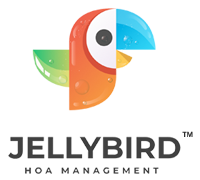Community Managers, also known as Community Coordinators, play a crucial part in the management of an HOA. They carry out the association’s policies, manage daily operations, and much more. If you would like to better understand what a community manager is, and the breakdown of their role in maintaining a community, this article is for you!
Purpose of Having a Community Manager
Community managers are an essential part of the management of an association. They make the lives of the board of directors and homeowners easier by handling the daily operations of the association and keeping open communication between themselves, the board, and any vendors working within the HOA.
Duties of a Community Manager
While the role of the community manager may vary from association to association, here are some of the ways a community manager may help their HOA.
- General Administration
Community managers can cover a wide array of general administration duties for the association. They may assist the board in customer service, documenting and maintaining records, reviewing policies, collecting assessments, enforcing deed restrictions, and so much more in their day-to-day operations. - Communication
Communication is an important part of a community managers responsibilities. From communications with the board and vendors to assisting the board in their communications with the homeowners, they make sure everyone is up to date on all information within the association. - Financial Management
Actively monitoring an association’s budget and maintaining an understanding of their financial position is one of the vital jobs of a community manager. They ensure vendors are paid on time for their services and that the association’s assessment collection policy is adhered to. Additionally, community managers work to prepare and manage the association’s annual budget and deliver their financial reports. - Tax Preparation
Community managers can assist boards in finding CPAs or attorneys for their association, that way, the HOA can rest assured that they have a qualified professional handling deadlines for both the state and federal report requirements. - Insurance
While procuring insurance is not something your community manager would be responsible for; they may still help in seeking viable and competitive bids for associations. - Policies
Community managers oversee supporting the board with policy-related issues. Your community manager can assist the board in determining whether the existing policies are enforceable, necessary, and best practice by assessing them to make sure they are in accordance with state law and the governing documents of the association. - Common Area Maintenance
All common area maintenance is under the supervision of the community manager. This includes making certain that all public spaces are well-kept, secure, and protected. Your community manager will work to finish special projects as soon as possible and will communicate with the board in advance of any expense variances that may need to be addressed. - Vendors and contracts
Your community manager will save you a ton of time and money by researching vetted vendors with the best prices and past customer reviews. Sometimes, the community manager might even be able to achieve better rates by partnering with neighboring communities.
What a Community Manager Should Not Do
Sometimes it is easy to delegate tasks over to your community manager, especially when they do such a great job, however, there are certain things that they cannot do.
- Giving Allowances
Dismissing late fees, waiving rules, or excusing violations are all things community managers do not have authority to do. They may be available for advice on certain cases, but they cannot execute any allowances to homeowners. - Performing Board Duties
Being asked to perform or complete any duties that specifically belong to the HOA board or any duties outside of their formal/contractual duties is not something your community manager may do. - Not Adhering to Financial Rules/Budgets
Signing checks, failing to stick to the HOA budget, or assessing fines are all matters the board must conduct or decide on. - Annual Audits
Community managers cannot oversee annual audits. - Hiring/Firing Vendors
Hiring or firing vendors and obtaining HOA insurance without review and approval of the board is not something a community manager has the authority to do. - Initiating the Lien Process
Community managers cannot initiate the lien process against any homeowner. - Intervening in Homeowner Disputes
If homeowners have a conflict serious enough that it is brought to the community managers attention, they may let the board know but will not be involved in neighbor-to-neighbor disputes.
It is important to understand the different roles and tasks that can and cannot be preformed by a community manager. Knowing what the board needs to handle and what can be given over to the association’s community manager will help everything run more smoothly.
Qualities Great Community Managers Possess
Like every professional, there are people who are good at their job, and there are individuals who are great and excel in their role. Here is a list of traits you can expect from a great community manager:
- Leadership skills.
A great community manager must have the ability to voice concerns to the board and for the board on any matters of concern or that they can lend advice in. - They serve as an advocate for the association.
Most boards rely on their community managers to know more about certain things, such as which vendors have the best prices and are the most reliable, or what laws might apply to certain situations in the community. - Timely and effective response.
While it is important that all community managers are responsive in getting back to any homeowner and board questions, here at JellyBird, our 24-hour policy encourages our community managers to always practice timely responses to their associations. - Decisiveness.
Sometimes making the final decision can be challenging. Community managers need to be able to make those decisions based on professional experience and research. - They’re honest and fair.
Great community managers are people you know you can trust. Being honest and fair when it comes to running and maintaining a community is a pivotal part of a community manager’s job. - They promote community.
From encouraging boards to host more community activities, to building relationships within the HOAs they work for, a great community manager will promote community in all aspects of their work. - They take time to recharge and find balance.
Having a community manager who knows how to balance their personal life and managing their communities, will make for a great fit to your HOA!
Support for the Community Manager
It is good to understand what a community manager does and does not do for HOAs, so the community can set their expectations appropriately. Knowing their role can also be an important factor in finding the right community manager for your association. It is the board’s job to be forthcoming about your collective strengths and weaknesses, that way, when you talk to your HOA management company, they can assign the perfect manager to your community.
Community managers work hard to help the board run their community smoothly and achieve the goals set for the community. You can support them by showing your appreciation and providing open and honest communication regarding expectations. Remember that community managers are experienced professionals who partners with the board to make the association a great place to live in!

